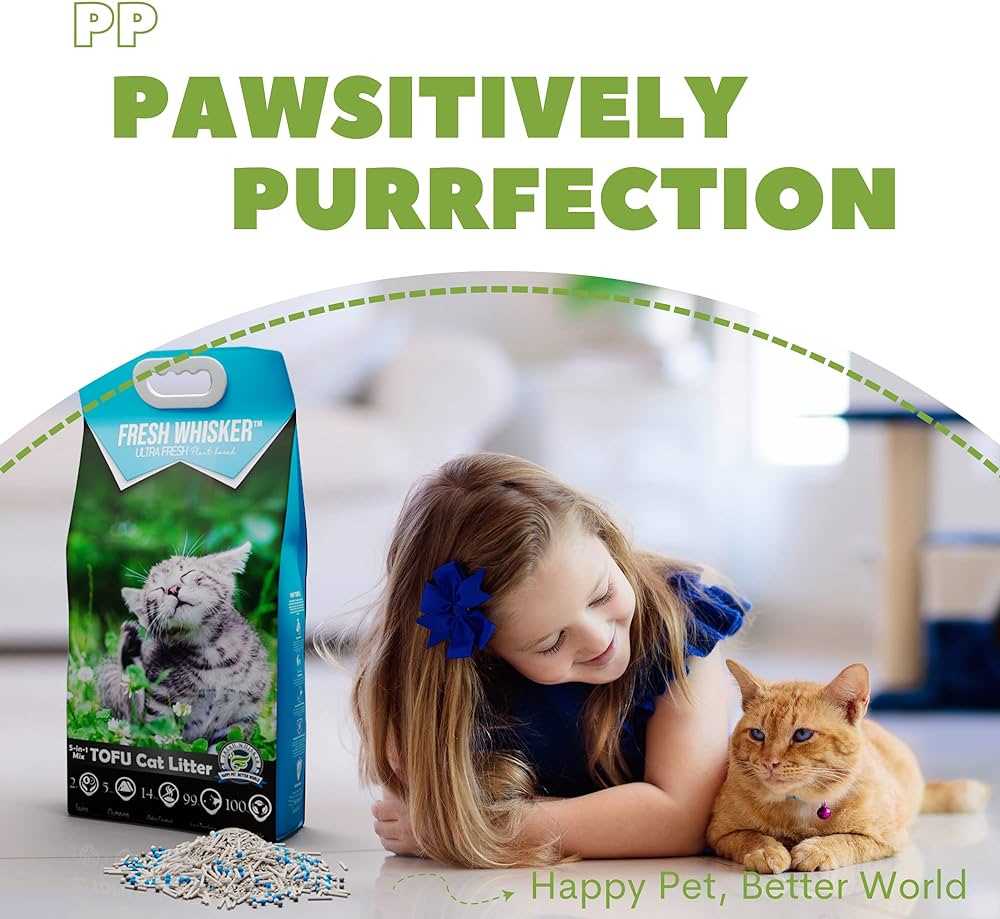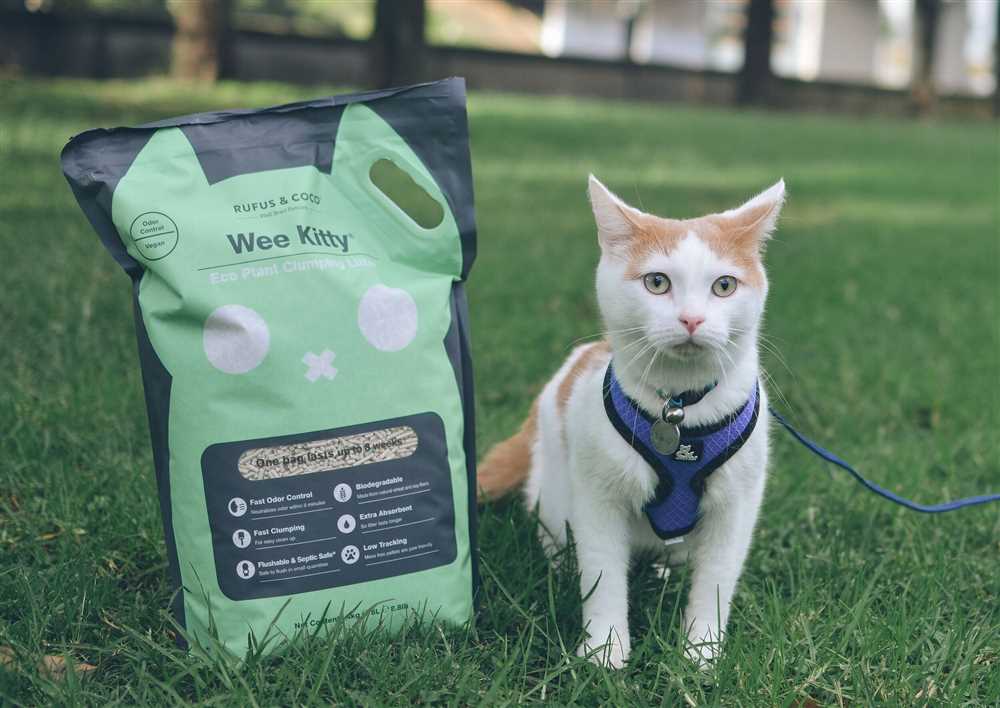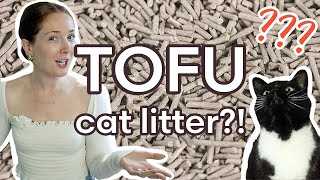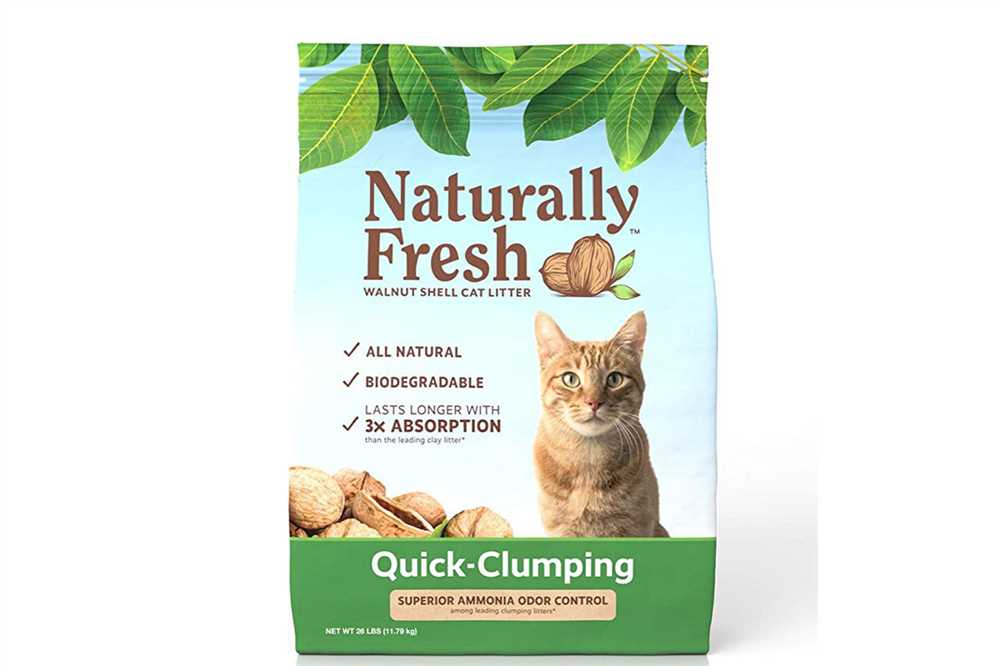
When it comes to cat litters, the options are no longer limited to traditional clay varieties. There is a whole world of vegetal and organic alternatives waiting to be explored. In recent years, the market for natural and plant-based cat litters has been steadily growing as cat owners uncover the numerous advantages they offer over traditional litters.
Exploring the benefits of these botanical and herbal litters, cat owners are discovering that they provide a healthier and more environmentally-friendly option for their furry friends. Unlike clay litters, which often contain harmful chemicals and additives, natural and plant-based litters are made from all-natural materials, making them safer for both cats and the environment.
One of the main perks of using natural litters is their ability to absorb odors more effectively. Many plant-based litters are infused with natural scents, such as lavender or eucalyptus, which help to mask unpleasant smells. Additionally, these litters are often biodegradable, meaning they can be safely composted or disposed of without harming the planet.
By delving into the world of natural and plant-based cat litters, cat owners can provide their feline companions with a healthier, safer, and more environmentally-friendly experience. So, why not take the leap and uncover the benefits and advantages of these innovative litters today?
Eco-Friendly Option for Your Feline Friend

When it comes to exploring the world of cat litters, there are various options available in the market. While clay litters have been the go-to choice for many years, cat owners are delving into the advantages of natural and plant-based alternatives. One such option that is gaining popularity is organic and vegetal cat litters.
Uncovering the Benefits of Organic and Vegetal Cat Litters

By exploring cat litters that are all-natural and plant-based, cat owners can discover the perks of using environmentally-friendly options. These litters are made from ingredients such as herbal and botanical substances, which provide several advantages over traditional clay litters.
One of the major benefits of plant-based cat litters is their biodegradability. Unlike clay litters that take years to decompose, organic and vegetal litters break down naturally and quickly. This not only benefits the environment but also makes it easier for cat owners to dispose of them.
Additionally, natural cat litters are typically free from harmful chemicals and additives. Cats are known to be sensitive to certain substances, and using plant-based litters can help avoid potential health issues. These litters are often fragrance-free, reducing the risk of allergies or respiratory problems for both cats and their owners.
Furthermore, organic and vegetal litters are known for their excellent odor control properties. They can effectively absorb unpleasant smells, keeping the litter box fresh and clean for a longer time. This not only helps maintain a pleasant atmosphere in the house but also makes it more comfortable for cats to use their litter boxes.
Exploring the Advantages of Plant-Based Cat Litters

When it comes to the advantages of plant-based cat litters, there are several points worth considering. These litters are typically lightweight, making them easier to handle and carry. They also tend to clump well, making it simpler to clean the litter box and remove waste.
Furthermore, natural litters often have a lower dust level compared to clay litters. This can be beneficial for both cats and their owners, as it reduces the risk of respiratory issues caused by inhaling dust particles.
Lastly, plant-based cat litters are an eco-friendly choice. By opting for organic and vegetal options, cat owners can contribute to a greener environment. These litters are often made from sustainable and renewable resources, minimizing their ecological footprint.
In conclusion, organic and vegetal cat litters offer a range of advantages over traditional clay litters. From their environmentally-friendly nature to their odor control properties and health benefits, exploring the world of plant-based cat litters can be a worthwhile choice for cat owners looking for a more sustainable and natural option.
What are the advantages of natural and plant-based cat litters?
Natural and plant-based cat litters come with several advantages. They are biodegradable and eco-friendly, making them a greener choice compared to traditional clay litters. They also have superior odor control properties, absorb moisture effectively, and are often free of harmful chemicals and synthetic fragrances. Additionally, these litters are less likely to cause allergic reactions in cats and are often softer and more comfortable for their paws.
How are environmentally-friendly and herbal cat litters beneficial?
Environmentally-friendly and herbal cat litters offer a range of benefits. They are made from natural, renewable resources, reducing their carbon footprint and contribution to landfill waste. These litters are often biodegradable, compostable, and flushable, minimizing environmental impact. They also tend to be free from harsh chemicals, artificial dyes, and perfumes, making them a safer option for both cats and their owners.
What perks do all-natural and vegetal cat litters provide?
All-natural and vegetal cat litters have several perks. They are typically made from renewable plant-based materials like corn, wheat, or bamboo, offering a more sustainable option compared to clay litters. These litters often have excellent clumping abilities, making them easier to scoop and clean. They are also dust-free or have reduced dust levels, reducing respiratory issues for cats and humans. Furthermore, they are often lighter in weight, making them easier to carry and transport.
What are the advantages of organic and botanical cat litters?
Organic and botanical cat litters offer numerous advantages. They are made from organic and natural ingredients, ensuring the absence of pesticides, synthetic fertilizers, and genetically modified organisms. These litters are often odor-absorbing, providing effective odor control without the use of artificial fragrances. They are also gentle on sensitive cat paws and are less likely to cause tracking throughout the house. Additionally, organic and botanical litters can be composted or used as garden fertilizer, promoting a more sustainable waste management solution.
Why should I consider switching to natural and plant-based cat litters?
Switching to natural and plant-based cat litters has numerous benefits. These litters are more environmentally friendly, as they are made from renewable resources and are biodegradable. They are also healthier for your cat, as they often lack harsh chemicals and artificial fragrances that can trigger allergies or respiratory issues. Additionally, natural and plant-based litters are often more effective at controlling odors, absorbing moisture, and providing comfort for your cat’s paws. Making the switch can contribute to a greener and healthier living environment for both you and your feline companion.
What are the advantages of natural and plant-based cat litters?
Natural and plant-based cat litters have several advantages over traditional clay litters. They are biodegradable, which means they break down easily and do not contribute to landfill waste. They also have less dust and are generally more lightweight, making them easier to handle and less likely to track throughout the house. Additionally, natural and plant-based cat litters are often made from renewable resources, reducing their environmental impact.
Leave a Reply